Inside: When kids are feeling down, try one of these encouraging phrases for kids to connect your child to their inner greatness.
My three year old has boundless amounts of energy some days. Some days I look at him and wish I could bottle up whatever special energy he has and sell it on eBay.
I would post it on Facebook, and it would get 87,183 shares. And then I would make a bazillion dollars.
That would be cool.
Unfortunately, that is not reality. Most days we settle for a trip to the park instead to help burn some of that energy off.
Related:
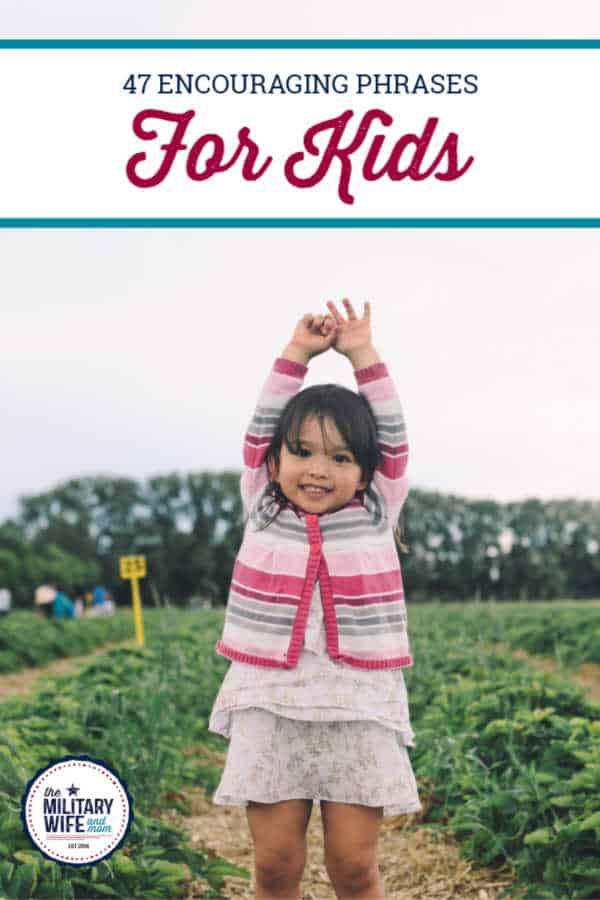
One day we were enjoying a fun time at the park and he wanted to climb the rock wall. He was two. As in two years old. Except he thinks he is more like thirty years old. Two going on thirty…who would’ve thunk it?
I graciously appeased him and gently helped him climb the rock wall. I’m not gonna a lie, my heart was about to drop at any moment, but he desperately wanted to climb this wall. He was determined to make it. On his way up, I told him things like…
You almost got it!
Keep on trying!
He finally reached the top and his eyes changed dramatically. Grinning from ear to ear, his eyes glistened. They were filled with hope and adventure. I said, “You made it! You must feel so proud of yourself!”
It was during that day at the park that I realized the powerful impact of encouraging phrases for kids. There are so many things parents and teachers can say to encourage and inspire confidence in their son, daughter or student. It’s so simple, yet so helpful.
After that day, I started writing down many of these phrases that made his “eyes glisten.”
Here are my top encouraging phrases for kids:
1. I can see you’re really trying!
2. Keep on trying!
3. You almost got it!
4. I can see you tried hard.
5. I appreciate your help.
6. How do you feel about that?
7. I’m glad you enjoy learning!
8. I’ll bet you knew you could do it!
9. You make my job easy.
10. You’re really giving that your best!
11. You’re the bright spot in my day.
12. You’ve just about got it.
13. You’re really improving.
14. You’re getting better!
15. Now you have it.
16. Now you’ve figured it out!
17. That’s really creative.
18. Thanks for helping make this a good day!
19. Nice going!
20. That’s the way to do it.
21. You did it that time!
22. One more time and you’ll have it!
23. Hey, you did it!
24. I believe in you.
25. I trust you.
26. I’m so happy for you.
27. You must feel pretty proud!
28. You’re really going to town.
29. You must feel good about that.
30. You’ve made a lot of progress.
31. That’s a tough one, but I’ll be you can figure it out.
32. I like the way you handled that!
33. Good remembering.
34. You’re fun to be around.
35. You must’ve been practicing.
36. You were a real help today.
37. I appreciate your help.
38. Give yourself a pat on the back!
39. You did a lot of work today!
40. Look how far you’ve come!
41. You’re improving!
42. You’re really getting that hang of it.
43. I think you can do it!
44. I have a nice time when you are along.
45. Being with you is a treat for me!
46. You made it!
47. You did it all by yourself.
Printable Affirmation Cards for Kids
I loved reading and researching about affirmations for kids and students so much that I created a beautifully designed set that your kids CAN actually use to affirm their Inner Greatness.
They work well for teachers or parents working with sons, daughters or students.
Find Your 31 Days of Printable Affirmations for Kids in our Shop
Free printable encouraging phrases for kids.
Print this out for free and put it on your refridgerator for easy access. Simply right click this link–Encouraging Phrases for Kids–select save image as, then print from your home computer. You can also click the image below!
An encouragement for parents too.
Sitting here, my toddler is running around the house without pants on, screaming la, da, la, da, da, la, la, dada, da. It’s moments like these where I briefly think about how I absolutely MUST find a way to sell this energy on eBay to make a bazillion dollars.
And then my toddler comes running to me, puckers his lips and kisses me on the cheek for a second before running back to playing.
It’s then that I realize, I don’t need a bazillion dollars.
I’m already the richest girl in the world.
Want more on parenting?
- How to Help Toddlers Fall Asleep Fast
- The Most Overlooked Reason Why Kids Won’t Listen
- The Printable Daily Routine Cards That’ll Get Your Toddler Cooperating
- Tired of Controlling Kids? The Secret Sauce to Gaining Their Cooperation
- 31 Days of Printable Affirmations for Moms to Encourage and Inspire
- 31 Printable Affirmation Cards for Kids — They’ll Actually Use
What’s your favorite encouraging phrase for kids? Let’s chat in the comments!
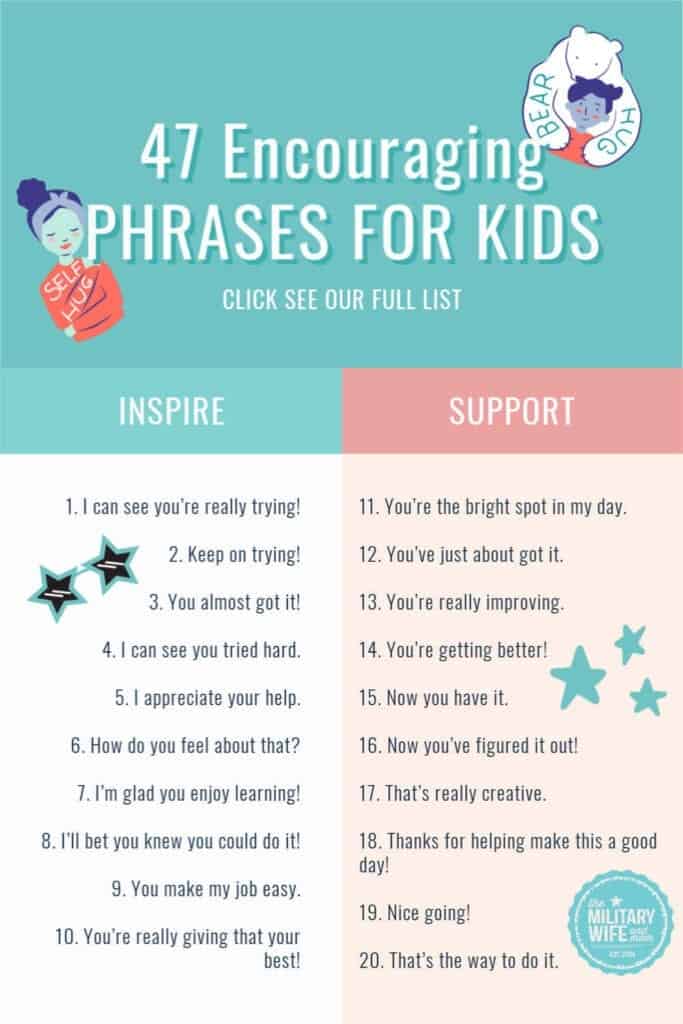
I've created a free email series just for you! If you are struggling with teaching your child to listen, this series will help transform your parenting. Yes, really. I've seen my proven strategies work time and time again for parents. I know it can work for you too.
After taking my free email series, you will:
- Learn simple, yet highly effective listening strategies
- Experience a stronger connection with your child
- Enjoy more peaceful parenting days
- Gain more cooperation from your child

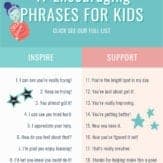


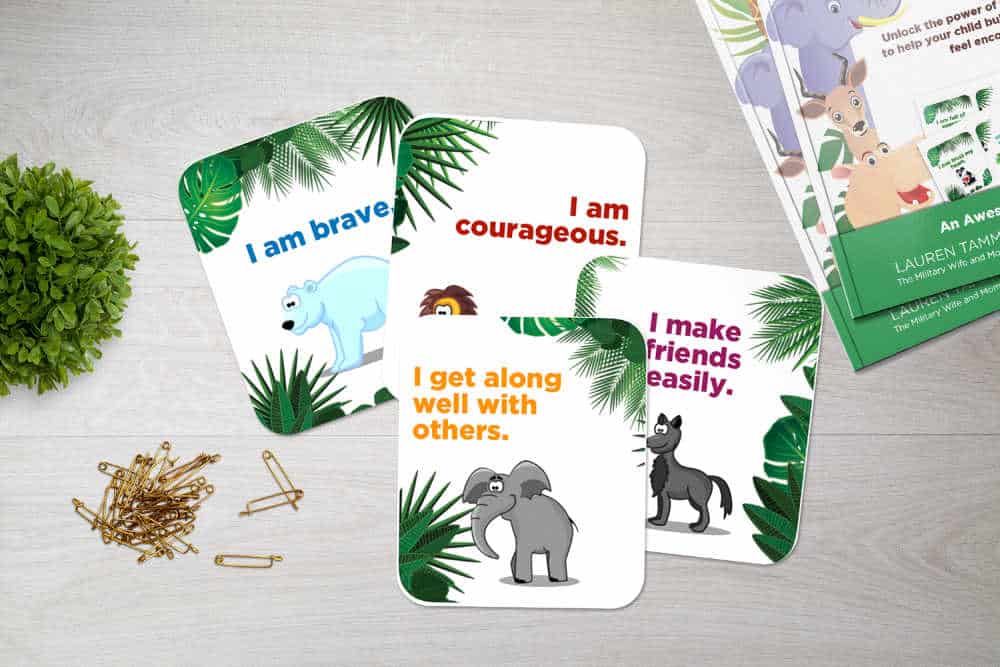
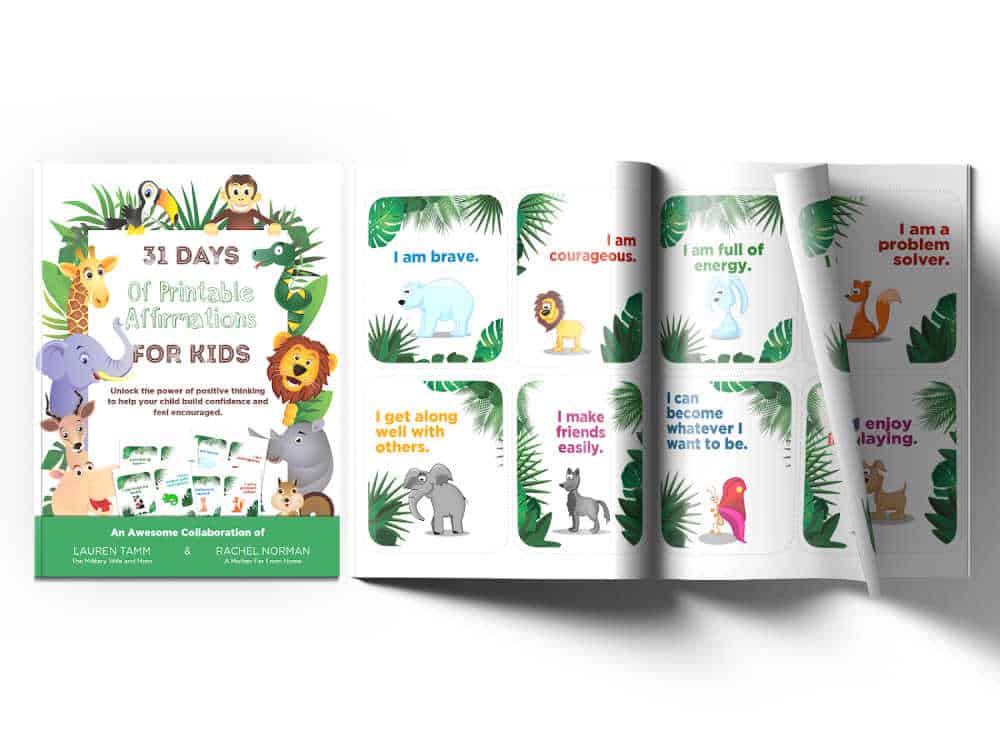
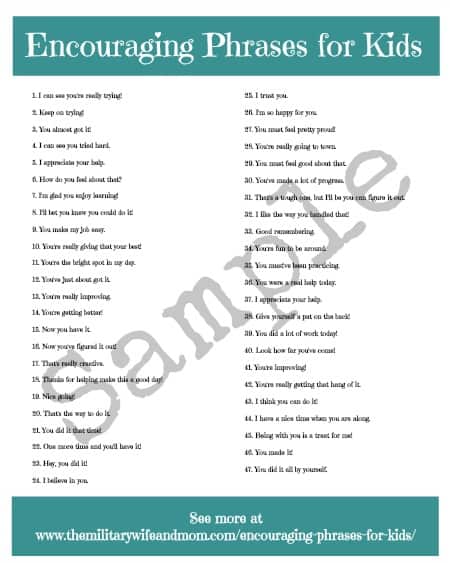
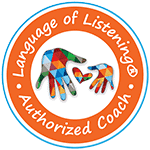
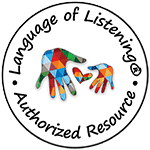
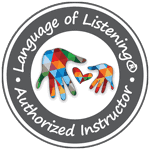









Rich lady, indeed! Great list here for home and the classroom! Sharing! — Amy
Awww, these are fantastic! I love, “I’ll bet you knew you could do it!”
Hi I’m very encouraged by having found this material I want to thank you for sharing it. I will pass it on to young stuggling parents and to my daughter for her to use it with my grandchildren
This is amazing, its sometimes so hard to deal with kids and i believe loving them and using positive words on them will do more good.